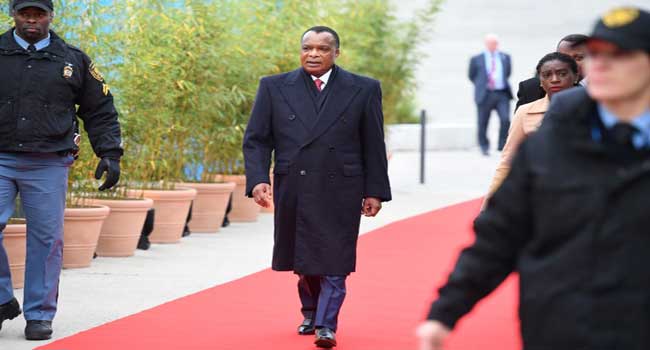The Republic of Congo’s President Denis Sassou Nguesso has reportedly chosen a new government that includes his son as well as an opposition leader, according to a statement made available on public television.
Africa Today News, New York understands that previous governments resigned earlier this month in a procedural move after Sassou Nguesso, one of the world’s longest-serving leaders, easily won a fifth term in a March election when his main opponent died of Covid-19 on polling day.
The new government has 36 members including four ministers and eight women, the official statement said on Saturday night.
The president’s son Denis Christel Sassou Nguesso will head up the newly-created ministry of international cooperation and public-private partnerships.
Read Also: Tanzania Opposition Leader Fled Country Amid Threat To Life
Last July, the NGO Global Witness said US federal prosecutors were probing the 46-year-old over alleged embezzlement of several million dollars from the publicly-owned National Society of Petroleum of Congo.
His 77-year-old father has headed authoritarian regimes in the central African country since 1979 — with a brief hiatus early in the 1990s — and constitutional changes could keep him in power until 2031.
Sassou Nguesso’s son is one of 11 newcomers to the administration.
Philosophy professor Honore Sayi, who had presided over Congo’s largest opposition group the Pan-African Union for Social Democracy, will be energy minister.
Rigobert Roger Andely, a former banker from the same northern Cuvette region as the president, is once again taking the role of finance minister, a job he held from 2002 to 2005.
Seven people were sacked, including Henri Djombo who had served as a minister since 1997, and Yvonne Adelaide Mougany who had been in the government since 2002.
Prime Minister Anatole Collinet Makosso, who was appointed on Wednesday after his predecessor submitted his government’s resignation on May 6, was told to put the new team to work “without delay”.
Among the challenges, the new government faces are making good on delayed payments for retirement pensions and scholarships for university students.
Other economic challenges include dealing with public debt, which stood at 87 percent of the country’s GDP in 2020 before the pandemic and re-starting negotiations with the International Monetary Fund.
AFRICA TODAY NEWS, NEW YORK

